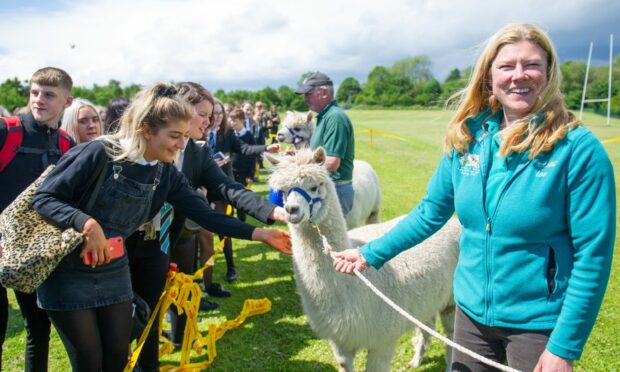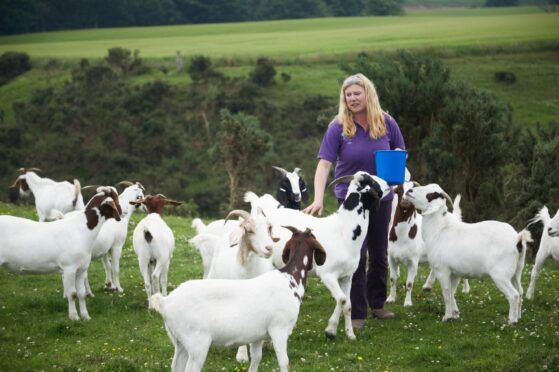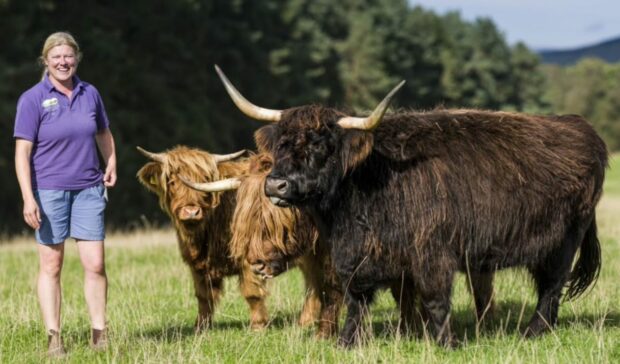Diversification is a great opportunity to create a project and share the passion you have for it with others.
Our own diversification was fairly organic, starting with farmhouse B&B in 2006 before we introduced a holiday cottage in 2009.
Over the next few years I was invited to help in local tourism groups and a Scottish Enterprise working group looking at the new concept of agritourism within Scotland and I was lucky enough to join fellow farmers on an agritourism learning journey to Italy with Go Rural.
This experience really opened my eyes to what farms can offer to visitors and the concept of our own farm experiences was triggered.
It took a few years to come up with a brand and logo and the biggest barrier was our own lack of self-belief. It was too easy to talk ourselves out of making a change by assuming it would be too difficult to manage the public on our farm, especially around health and safety.
As tenant farmers we were also concerned about how it would impact our tenancy but we had to do something or we wouldn’t be farming any more – that was the reality.
The launch of our tours in February 2017 may never have come to fruition if it wasn’t for a need to have a survival plan after experiencing significant cash flow challenges when a cross-compliance inspection triggered an 11-month delay in receiving our 2012 single-farm payment.
We couldn’t find ways to increase our income within the farm and didn’t have the capital to create something new and luxurious.
It took six months to formulate a plan and speak to relevant parties including environmental health, who couldn’t have been more helpful.
So one day I started to tell our story of our epic farming life, which we now share daily as caretakers of the land and animals to help educate about agriculture and where our food comes from.
Now, five years on, we have introduced many new experiences including alpaca walking, a Highland cow experience and lambing tours – all of which help support the sustainability of the farm and, just as importantly, the way in which we want to farm.
Agriculture remains at the heart of everything we do and we believe it’s important to share the reality of farming today and how each of the animals play a part in the story.
During lockdown we started to offer our own goatmeat and lamb for sale and now visitors often buy some produce before they leave. This supports the farming enterprise directly and we plan to share our own produce in a food experience with visitors to enhance the farm to fork story we share.
TOP TIPS
- Every farm and farmer is different so look to your strengths. For us it was the many friendly animals we already had.
- Only diversify and choose to deal with the public if you enjoy speaking to people.
- Speak to other businesses who have diversified. Plenty are willing to share their experiences.
- Join a group for support. I’m a member of Scottish Agritourism which is a fantastic group of farmers from all across Scotland all at varying stages with their agritourism businesses but they offer lots of support and ideas.
- Speak to your support network. Your bank manager, accountant, farming consultants, local council, staff, family and friends can all offer valuable advice
- Research your project and look for a gap in the market locally.
- An authentic offering is what customers are looking for, so keep it real.
- Use free resources to support your business. I use social media to drive mine and have free support from local marketing groups such as VisitAngus and VisitDundee.
- Value your time and product, include all costs and price accordingly. Don’t undervalue your time.
- Involve your customers in your business, ask their advice and ask them to share their experiences with others through reviews and social media. Word of mouth is so important. Ensure you reply to all reviews.
Louise Nicoll and her family won the 2021 Agriscot Farm Diversification award.


